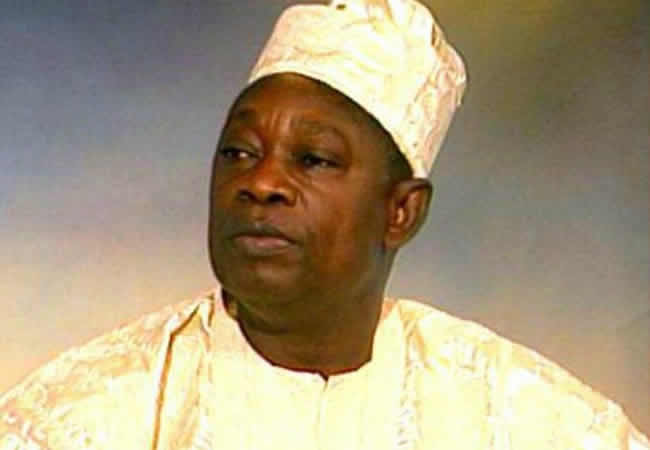The Egbas are a subgroup of the Yoruba ethnic group in southwestern Nigeria, primarily located in the Ogun State region, especially in the city of Abeokuta, which is historically significant as their cultural and political capital.
The Egba people have a rich heritage, known for their distinct customs, traditions, and exceptional contributions to Nigeria's history and development. They are one of the foremost educated groups in Nigeria and were among the first to taste civilization and establish a mutually beneficial relationship with the British.
History and Origins
The Egbas trace their origins to the ancient Yoruba kingdoms and were originally part of the Oyo Empire. However, due to political unrest, wars, and pressures from neighboring groups, they migrated southwards and eventually established Abeokuta as their homeland in the early 19th century.
Their main city, Abeokuta means "under the rock" in Yoruba, a name inspired by the massive Olumo Rock, which provided refuge during inter-tribal conflicts. Abeokuta has since become a significant cultural and political center for the Egbas and is famous for its role in resisting British colonial incursions.
Governance
Traditionally, the Egbas have a monarchical system with the Alake of Egbaland as the paramount ruler. The title "Alake" represents the cultural and spiritual leader of the Egba people, and the Alake's role is integral to the preservation of their customs.
The Egba nation is very distinct from other Yoruba subgroups because it is made up of very influential subdivisions, Ake, Owu, Oke Ona and Gbagura, each with its own king. Ibara, though geographically located in Abeokuta as well, is part of Yewaland.
During colonial rule the British only recognized the Alake (or King of Ake) as the paramount ruler of the whole clan and their territory, and so, his successor is now referred to as the Alake of Egbaland. The titles of the kings of the other subdivisions are Osile of Oke Ona, Agura of Gbagura, and Olowu of Owu, in order of settlement and seniority in the Egba nation.
Egba Religion and Spirituality
The Egbas traditionally practice Yoruba spirituality, with influences from Christianity and Islam. They are known for various religious festivals, such as the Lisabi Festival, held in honor of the heroic figure Lisabi, who led a successful rebellion against oppressive rule.
Abeokuta was the first settlement of Reverend Henry Townsend who was sent from England by the Christian Mission Society (CMS) to spread Christianity to Yoruba land. The Ake Church, now known as St. Peter's Anglican Church, Ake, Abeokuta, was the first church in Nigeria. It is also the first building in Nigeria to have corrugated iron sheets.
Art, Music, and Language
Egba culture is rich in traditional Yoruba art forms, music, and folklore. They speak a dialect of Yoruba, which includes distinct vocabulary and expressions unique to the Egba subgroup. Their music and drumming styles are integral to celebrations, festivals, and ceremonies.
It was in Abeokuta that the Holy Bible was translated to Yoruba, by Bishop Ajayi Crowther.
Famous Egbas
The Egbas are highly sophisticated. For instance, the late Egba's Josiah Jesse “J.J.” Ransome-Kuti was a Nigerian clergyman and music composer. He was one of the first Nigerian composer, and known for setting Christian hymns to indigenous music and writing Christian hymns in Yoruba.
It is no surprise that his daughter, the late freedom and social justice fighter, Funmilayo Ransome-Kuti was also a composer, and the first Nigerian woman to drive a car. Funmilayo's son, the late Fela Ransome-Kuti (popularly known as Fela Anikulapo Kuti or simply Fela) was also a legendary composer, instrumentalist, freedom fighter and the pioneer of Afrobeat. The first for the Egbas didn't stop there. Their cousin, Professor Wole Soyinka, is the first African Nobel Laureate, who won the cherished Nobel Prize in Literature in 1986.
The Egbas have also had the great privilege of producing two Nigerian presidents, Chief Ernest Shonekan and the first Nigerian to rule as a military and civilian leader, Chief Olusegun Obasanjo.
Egbaland is also the home of the first newspaper in Nigeria, Iwe Iroyin. They are also the first group in Nigeria to have an anthem.
The Egba community have also produced several notable figures in Nigerian history, such as:
Chief Moshood Kashimawo Abiola (the late Aare Ona Kakanfo of Yoruba and winner of the acclaimed fairest presidential election in Nigeria)
Chief Ebenezer Olasupo Obey-Fabiyi, a veteran musician and evangelist
Chief F. R. A. Williams S.A.N., a legal luminary
Pastor Tunde Bakare, a lawyer and renowned pastor
Tunde Kelani, a cinematographer
Nigerian soccer legend, Segun Odegbami
Veteran Nollywood actor, Olu Jacobs
Dimeji Bankole, a former speaker of Nigeria's house of representatives
Afrojuju maestro, Sir Shina Peters and his son, pioneer music video director, Clarence Peters
Prince Bola Ajibola, a retired world court judge
Chief J.F. Odunjo, Yoruba literary icon, writer of the popular Yoruba classic, Alawiye series
Professor Adeoye Lambo, medical professor, former Vice Chairman of the World Health Organization (WHO)
Music superstars, Femi Kuti, Seun Kuti, and Made Kuti
Apala legend, Ayinla Yusuf (Omowura)
Nollywood star, Lateef Adedimeji
The Egbas remain an important part of Nigeria’s cultural landscape, contributing significantly to the nation’s arts, politics, and heritage.
Photo credits: LegitNG, PunchNG, PMNewsNigeria





